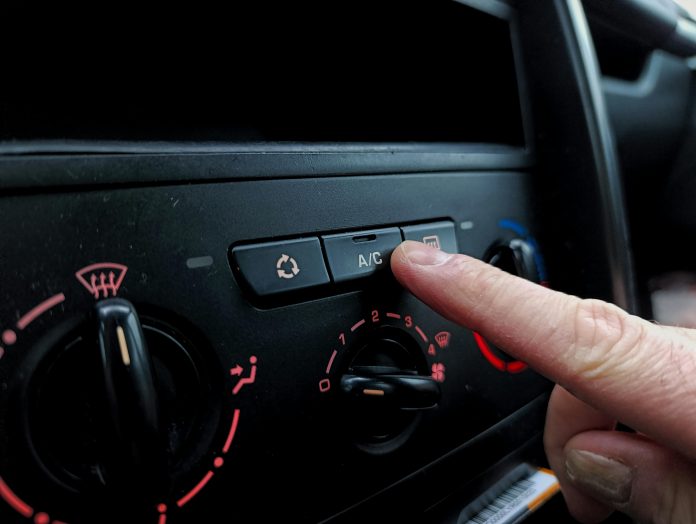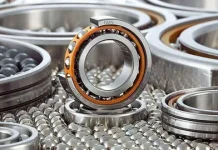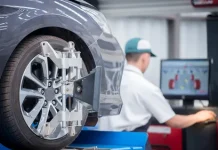There’s nothing quite like stepping into a sweltering car on a summer afternoon and blasting the air conditioning, hoping for instant relief. But what happens when your AC just can’t keep up? Or worse—blows warm air instead of cool? Summer heat can do a number on your car’s air conditioning system, and understanding why can help you spot problems early and keep your vehicle comfortable when you need it most.
Let’s take a deeper look at how those triple-digit temperatures affect your AC, what signs to watch for, and how to keep your system running efficiently all season long.
Why Heat Is Hard on Your Car’s AC System
Your car’s air conditioner works by pulling heat out of the air and pushing cooled air into the cabin. During the summer, when outdoor temperatures soar and your vehicle sits under direct sunlight, it takes more effort for your system to perform this job. That’s because the AC has to work against higher starting temperatures—both outside and inside your car.
When you get into a hot car, your interior can easily hit 130°F or more, especially if parked in the sun. That extreme heat builds up inside the dashboard, vents, and ducts—right where your AC begins pushing air. Your AC system then has to work double-time to cool that environment, and if it’s not in top condition, it might struggle to keep up.
Refrigerant Pressure and Summer Strain
One of the most overlooked effects of summer heat is how it increases the pressure inside your AC system. The refrigerant—a chemical used to absorb and release heat—must stay within a specific pressure range to function correctly. In extreme temperatures, pressure inside the AC lines can rise significantly, sometimes beyond what the system is designed to handle.
This kind of strain can lead to small leaks in the seals, hoses, or fittings. If the refrigerant starts to leak, your AC becomes less efficient and might even stop cooling altogether. Many drivers first notice this problem when their AC begins blowing air that’s cool—but not cold—or the airflow seems weaker than usual.
If you’re noticing any of these symptoms, it might be time to consider a car ac repair to catch issues early and prevent bigger problems down the road.
The Role of Airflow and Cabin Filters
Another common issue during summer is reduced airflow from the vents. While the heat doesn’t directly damage the AC blower motor, it can exacerbate problems that already exist—like clogged cabin filters or dirty evaporator coils. In summer, pollen, dust, and debris are more likely to circulate, especially in dry or windy climates.
When your filter is clogged, it restricts airflow, which means the cool air your AC is producing isn’t reaching you efficiently. Plus, your system has to work harder, which adds wear and tear. It’s a good idea to check your cabin air filter at the start of the summer season and replace it if needed.
Good airflow is essential not just for comfort but for the system’s health. Without it, the AC can become overworked and overheat—ironic, considering its job is to keep things cool.
Electrical Components Are Vulnerable to Heat, Too
Your car’s AC isn’t just a mechanical system—it relies heavily on electrical parts like sensors, relays, and the blower fan motor. These components are particularly sensitive to heat. Prolonged exposure to high temperatures can cause wires to expand, connectors to loosen, and fuses to fail.
On really hot days, you might notice your AC taking longer to start cooling, or it might shut off intermittently. These signs can be traced back to overheating components that are struggling to keep up. The sooner these issues are addressed, the better chance you have of avoiding a full system failure in the peak of summer.
Preventative Maintenance Makes All the Difference
The best way to protect your AC system from summer heat damage is simple: preventative care. Just like you wouldn’t run a marathon without training, you shouldn’t expect your AC to perform in peak heat without a little preparation. Scheduling a seasonal inspection ensures your refrigerant levels are correct, filters are clean, and all components are running smoothly.
Mechanics can also run a diagnostic test to make sure your compressor and condenser are operating efficiently. These two parts are often under the most stress during hot weather. A quick recharge or minor repair early in the season could save you from costly breakdowns when you need your AC the most.
And remember, even if your AC feels like it’s working fine, that doesn’t mean it’s running efficiently. A well-maintained system will not only cool faster but will also use less fuel, putting less strain on your engine during those long summer drives.
Conclusion: Don’t Let the Heat Beat Your AC
Summer heat is no joke—especially when your car’s AC system isn’t performing at its best. High temperatures put your air conditioning under pressure, push refrigerant systems to their limits, and reveal weaknesses in filters and electrical parts. But with regular maintenance and a little attention, you can avoid the discomfort of a hot car and keep your cool on the road.
If your AC is blowing warm air, making odd noises, or just not cooling like it used to, it may be time to get it checked out. A professional car ac repair can make all the difference between sweating through traffic or cruising in comfort.
At the end of the day, your AC should be your escape from the summer sun—not another source of stress. Take care of it, and it’ll take care of you.










